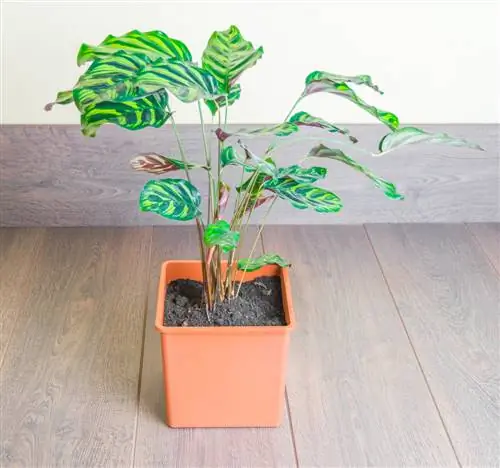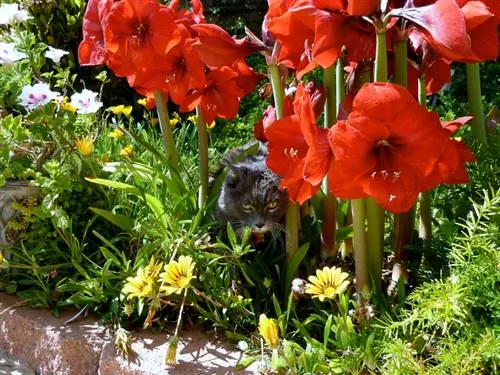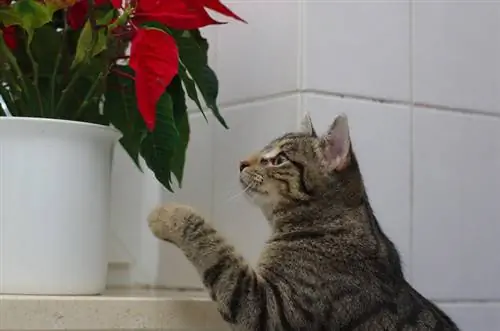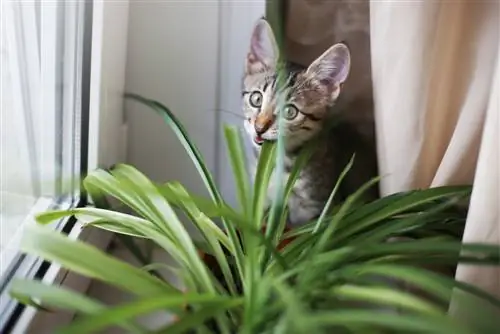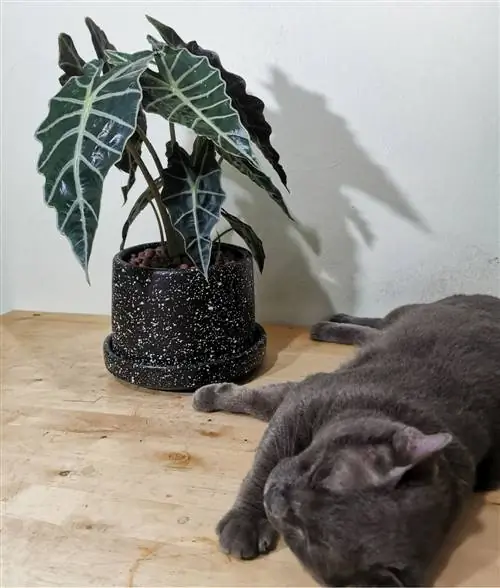- Author admin leonars@hobbygardeners.com.
- Public 2023-12-16 16:46.
- Last modified 2025-01-23 11:21.
Cat owners ask every plant in the house whether it contains toxins that can be dangerous to their four-legged friends. You don't have to worry about using the Calathea or Basket Marante as a houseplant. This ornamental plant is not poisonous to cats.

Is calathea poisonous to cats?
The calathea, also known as basket marante, is not poisonous to cats. Neither the leaves nor other parts of the plant contain toxins that can harm your four-legged friends. However, eating the leaves can still cause vomiting.
Calathea is not poisonous to cats
The calathea is also called “arrowroot”. That's why many pet owners assume that the marantine is poisonous because they think of the infamous arrow poison of South America.
However, the concern is unfounded. The Calathea is not poisonous, and not in any part of the plant. On the contrary, the name “arrowroot” indicates that antidote for arrow poison can be obtained from the plant.
The Calathea was even used for medicinal purposes in the past. However, this is now outdated.
Calathea is very susceptible to pest infestation
While toxicity is not a problem when keeping a Calathea, care does place certain demands on plant lovers. Pests such as spider mites in particular like to attack the basket marante.
They occur more often when the humidity is too low. Spray the plant regularly with low-lime water to prevent spider mite infestation.
If pests have appeared, rinse the basket marante in the shower. It is better to avoid using chemical means of control, especially if you have cats or dogs in your family.
Tip
If your cat has feasted on the Calathea, it may vomit, although the Calathea is not poisonous. This is no cause for concern. Some four-legged friends eat the leaves to cleanse their stomachs.

